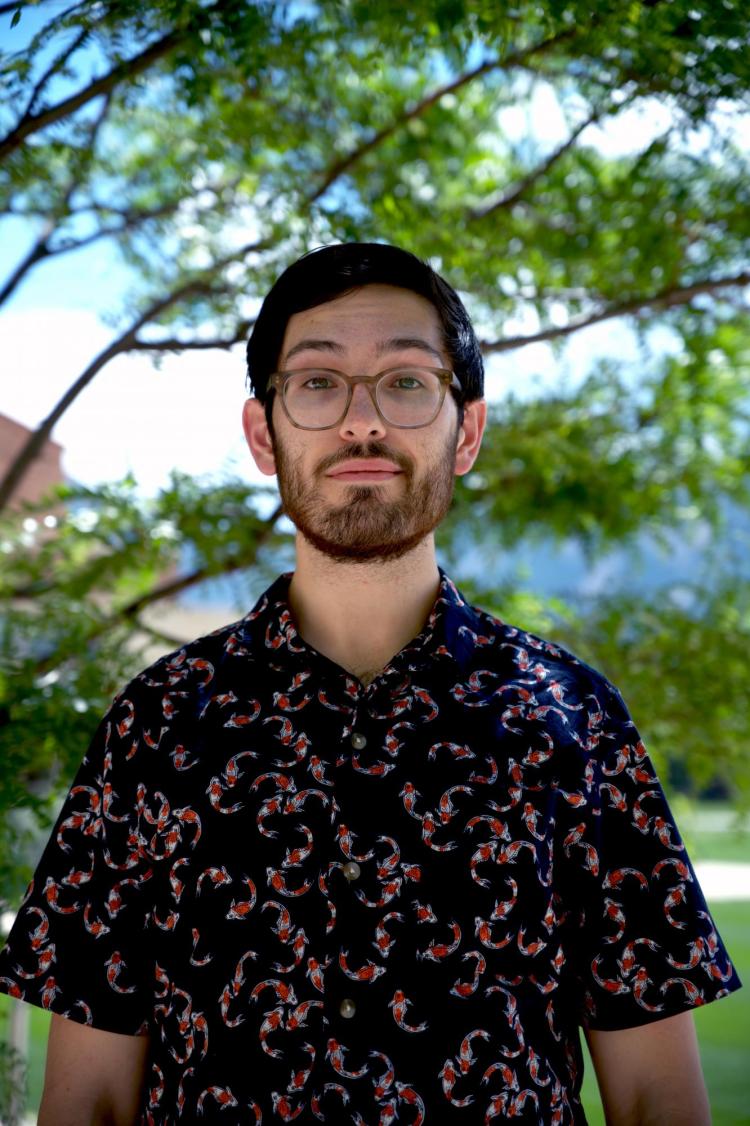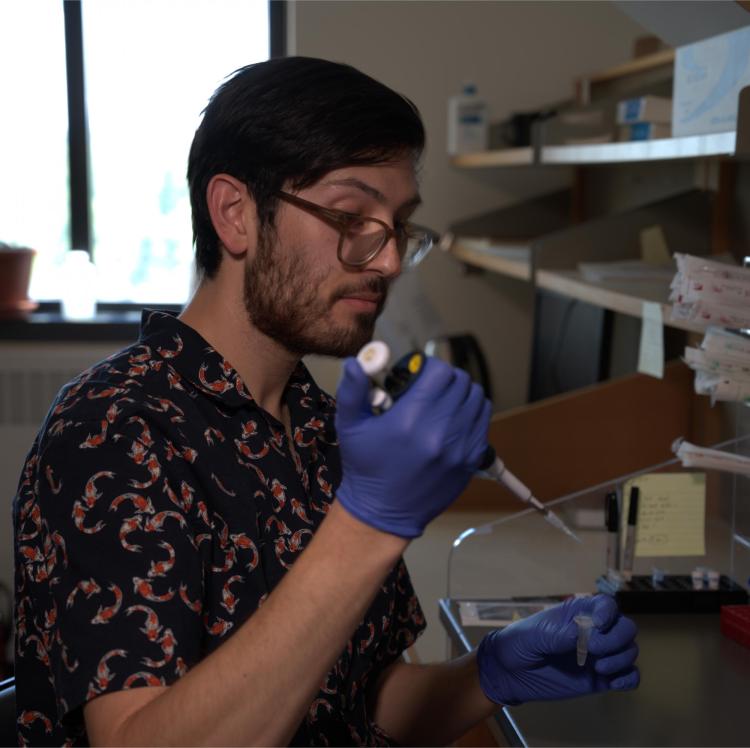RNA and Beyond: Otto Kletzien

Discovery and Innovation in RNA Research
Otto’s longstanding interest in RNA research landed him in the right place for pursuing graduate school. Colorado’s celebrated history of RNA research has roots right here at CU Boulder. Seminal discoveries include shedding light on the biocatalytic functions of RNA, characterizing enzymes for synthesizing and modifying RNA, and developing novel techniques for the identification of RNA ligands and the chemical synthesis of RNA. Otto hopes to continue this legacy of discovery and innovation through his work on RNA-protein complexes and riboswitches in the Batey lab. “Rob’s [Batey] lab was my first choice. He liked riboswitch work, studying the structure and designing and engineering RNA for specific applications.” It wasn’t just Batey’s research that caught his eye, “I also felt like I fit into the lab environment. We have a similar sense of humor and we have fun.” Batey’s lab also allows for flexibility and autonomy in a largely graduate student-driven environment, and Otto has enjoyed taking project ideas in new directions in collaboration with peers and other faculty both intra- and inter-departmentally.
Day to day, you’ll likely find Otto working in vitro, running electrophoresis gels, or conducting an RNA assay. This means quite of bit of calculation, perfecting bioinformatic pipelines, and optimizing assay panels. His thesis focuses on identifying RNA features that drive affinity for RNA-binding proteins, in order to better understand why they are biologically relevant. “This protein domain that recognizes RNA is very abundant, but poorly understood and I want to figure out more about what sort of RNA features they recognize.” In addition to his graduate thesis, Otto enjoys having the flexibility to explore other areas by contributing to different projects in the lab. As a side project, he’s adding to work that piques his early interests in riboswitches.
Otto’s interest in RNA research has also led him to join and take on a leadership role in the CU Boulder RNA Club. The club was founded in the 1980’s and continues to bring together researchers from CU Boulder, CU Denver Anschutz, and Colorado State to discuss current RNA research by grad students, post-docs, and faculty. “It was an opportunity for me to stay on top of RNA research, meet others, and make some good friends.” Although Otto has moved on, RNA club still meets bi-monthly and is always looking for new members!
Turning the Research Corner

In addition to the summer training program run by Biofrontiers, CU offers myriad resources for graduate students to learn programming and data science skills including a new Compuational Biology Minor that teaches undergraduates to combine computational thinking and algorithms to study biological problems and systems.
Getting into Research
Spending time purifying proteins in a lab as an undergrad was an important skill-building period. Otto also worked in the pharmaceutical industry for a year-long enough to learn how to organize and manage data and to firm up his research interests. This period fomented an interest in higher-level research, initially in bioengineering, which has since led Otto to the groundbreaking research he’s now conducting. Otto recommends getting into a lab, conducting research, and learning how to follow through on a project. Joining a lab as an undergrad set up the skills he uses today. In the Batey lab, Otto says the undergrads he works alongside are involved in every part of the protocol including creating libraries, running activity assays, and contributing to the data pipeline. If you’re an undergraduate interested in getting into a lab of your own, reach out to CU Biochem’s undergraduate program manager.


